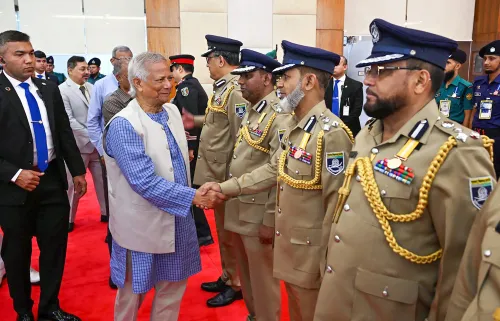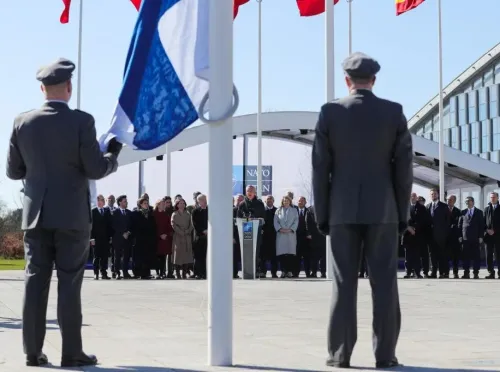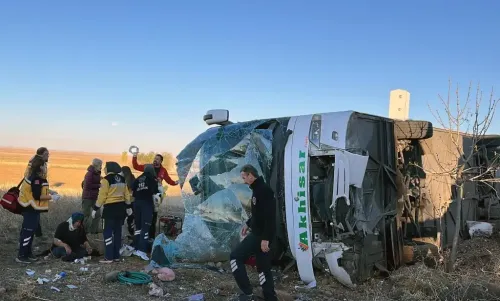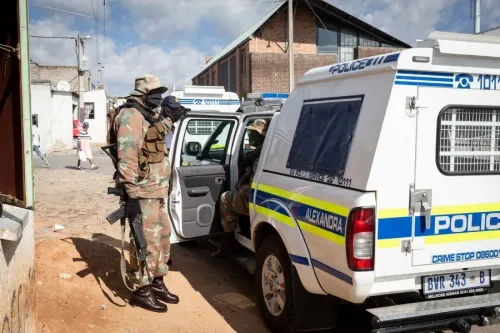What Led to 11 Fatalities and 567 Arrests During Protests in Kenya?
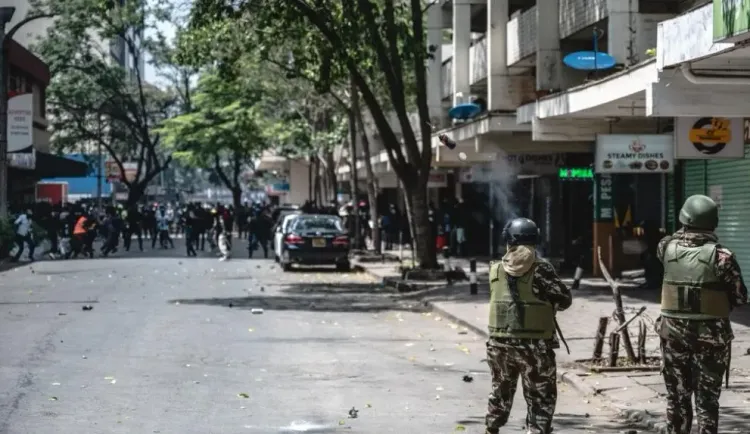
Synopsis
Key Takeaways
- 11 fatalities reported during anti-government protests in Kenya.
- 567 individuals arrested as unrest escalated.
- Significant police barricades disrupted movement, particularly in Nairobi.
- Human rights concerns raised regarding police conduct and uniform compliance.
- Presence of armed gangs noted during demonstrations.
Nairobi, July 8 (NationPress) – In a wave of anti-government demonstrations across Kenya, the National Police Service (NPS) reported that 11 individuals tragically lost their lives, while 567 others were taken into custody.
Moreover, numerous individuals, including law enforcement personnel, sustained injuries amid the unrest.
The protests on Monday coincided with the 35th anniversary of Saba Saba (July 7), a pivotal event that catalyzed Kenya's transformation from a single-party system to a multiparty democracy in 1990.
According to a statement from the police, "Preliminary reports reveal fatalities, injuries, vehicle damage, and several looting incidents. Among those arrested is Gitonga Mukunji, the MP for Manyatta Constituency."
Furthermore, the police noted that 52 officers and 11 civilians were injured, with multiple vehicles damaged during the chaotic protests.
The NPS praised its officers for exhibiting remarkable restraint and professionalism amidst “ongoing violence and provocations from criminals infiltrating the protests.”
Meanwhile, the Kenya National Commission on Human Rights (KNCHR) raised concerns regarding human rights violations during the Saba Saba anniversary protests on Monday.
“The Commission observed that significant police barricades were set up on major roads and access points, hampering the movement of citizens, especially in Nairobi. Additional blockades were noted in Kiambu, Meru, Kisii, Nyeri, Nakuru, and Embu. Despite a directive from Geoffrey Ruku, the Cabinet Secretary for Public Service, mandating all government employees to report to work, many citizens were unable to comply,” the rights body stated.
The KNCHR accused police officers of ignoring a High Court order by operating in several regions without their official uniforms during the protests.
“The Commission has noted a blatant disregard for a High Court order that mandates all officers managing demonstrations wear official uniforms and remain identifiable at all times. Numerous hooded officers, not in uniform, were observed traveling in unmarked vehicles while patrolling Nairobi, Kajiado, and Nakuru counties,” the statement continued.
Additionally, the human rights organization reported the presence of criminal gangs armed with makeshift weapons, including whips, wooden clubs, machetes, spears, bows, and arrows in Nairobi, Kiambu, Kajiado, and Eldoret.
“In both Nairobi and Eldoret, these hooded gangs were seen operating alongside police officers,” the statement concluded.


